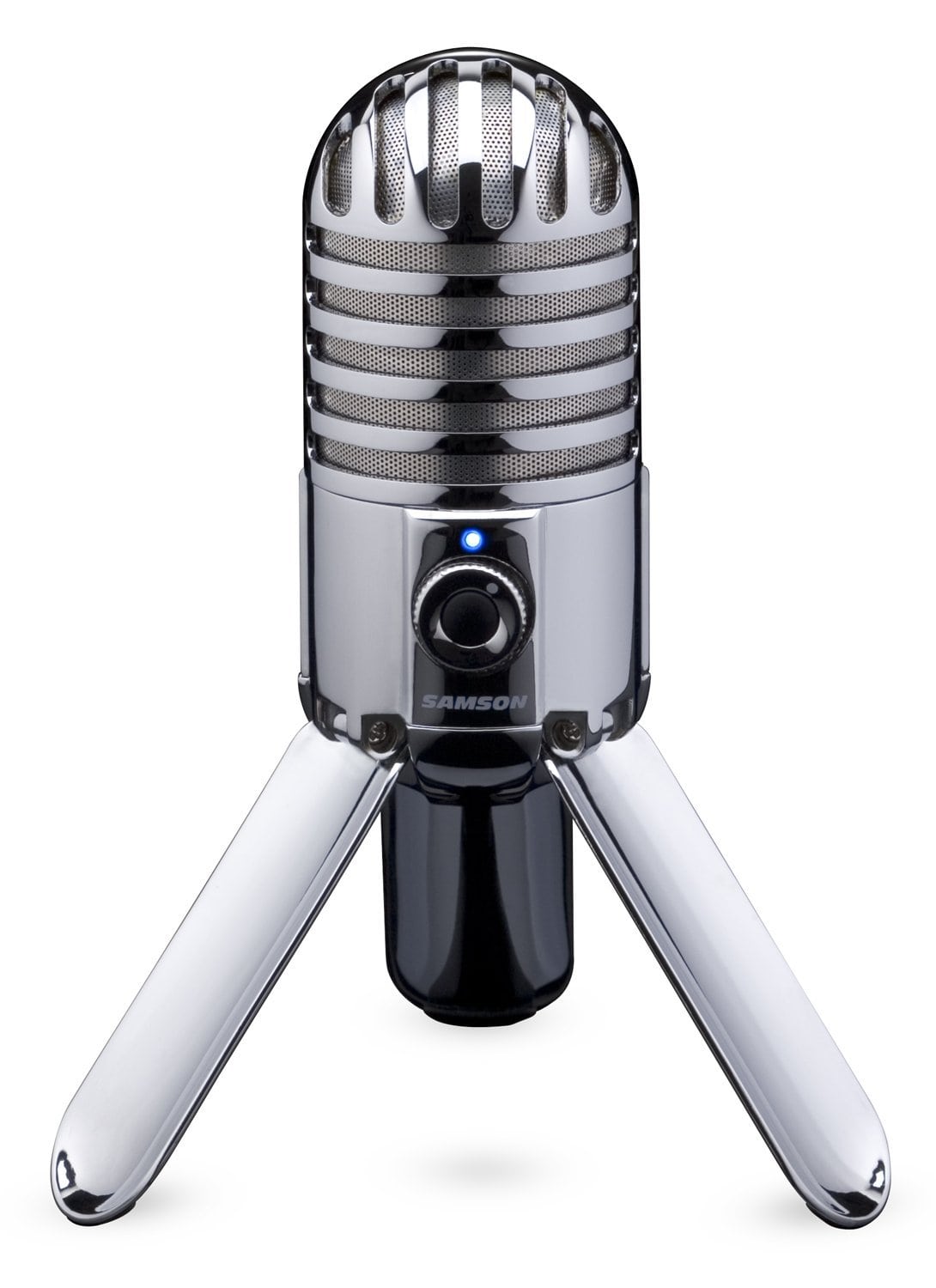G-Track Pro
Professional USB Microphone with Audio Interface
Samson Sound Deck Audio Software for Mac. For use with USB Microphone models: Q1U, Q2U, CO3U, CO1U, CO1U Pro, Meteor Mic, Meteorite, Go Mic and UB1. Product Description: Samson Sound Deck audio software provides new USB audio enhancement effects with an intuitive user control panel. To learn more and find out how to purchase the Sound Deck software, visit the Samson Sound Deck page for Mac OS X or visit the Samson Sound Deck page for Windows. Podcasting Perfection As the podcasting trend continues to grow, standards for audio quality and ease of use grow with it. Samson Sound Deck is a Shareware software in the category Desktop developed by Samson. The latest version of Samson Sound Deck is currently unknown. It was initially added to our database on. Make sure this fits by entering your model number.; Full high-def 1080P streaming stream and record vibrant, true-to-life video. The glass lens and full HD 1080P captures the most exciting details, bright and natural colors in fluid video at 30Fps, while the 78-degree field of view accommodates up to two people.
Resources & Manuals
(113.9 KB PDF file)
(100.1 KB PDF file)
(376.0 KB JPG file)
(1.9 MB PDF file)
(17.6 KB DMG file)
(17.6 KB DMG file)
(17.6 KB DMG file)
(17.6 KB DMG file)
(11.1 MB PDF file)
(11.1 MB PDF file)
(1.9 MB PDF file)
(146.0 KB PDF file)
(146.0 KB PDF file)
(146.0 KB PDF file)
(146.0 KB PDF file)
(146.0 KB PDF file)
(146.0 KB PDF file)
(1.4 MB PDF file)
(6.6 MB EXE file)
(6.6 MB EXE file)
(292.4 KB ZIP file)
(292.4 KB ZIP file)
(168.2 KB PDF file)
(1.2 MB PDF file)
(17.7 MB PDF file)
(17.7 MB PDF file)
(15.0 MB PDF file)
(15.8 MB PDF file)
(3.4 MB PDF file)
(2.1 MB PDF file)
(2.1 MB PDF file)
(1.9 MB PDF file)
(2.6 MB PDF file)
(326.0 KB PDF file)
(234.4 KB PDF file)
(328.9 KB PDF file)
(290.8 KB PDF file)
(1.2 MB PDF file)
(1.1 MB PDF file)
(1.1 MB PDF file)
(1.7 MB PDF file)
(702.7 KB PDF file)
(701.6 KB PDF file)
(3.9 MB PDF file)
(581.0 KB PDF file)
(324.3 KB PDF file)
(597.6 KB PDF file)
(16.7 MB PDF file)
Frequently Asked Questions

Yes. The C01u (and all other Samson USB mics) is compatible with all standard Operating Systems using USB 1.1, or 2.0 ports. These OSs include Windows XP, Vista, and 7. Also Mac OSX Tiger, Leopard, and Snow Leopard.
If you have a Mac, click the Apple in the top left corner, then click 'About This Mac'. If you have a PC, right click 'My Computer' or 'Computer' on your desktop, then click 'Properties'.
We don't know yet.
The SoftPre Applet is no longer available, as it is not necessary. The applet featured three options which can be found both in your Operating System's settings as well as in your recording software. If you are still using SofrPre, we recommend you uninstall to prevent any interference with your System or Audio Recording software. To uninstall Softpre (windows):Follow these instructions: http://www.samsontech.com/support/samson/howto/how-uninstall-softpre-windows-applet To uninstall Softpre Mac OS XDownload the uninstaller: http://www.samsontech.com/site_media/support/manuals/Samson_SoftPre_Uninstller_0.5.dmg
The delay you hear is called 'Latency'. This occurs due to the time it takes for your computer to process the audio in the digital domain, then change it back to analog so your speakers can play it.
Yes, but not with this mic. You would need to use an Audio Interface, which replays that audio back to you before the analog to digital conversion. The Samson G-Track is a great example of that.


All of our microphones come with a Euro Adapter. Some mics have them pre-installed in the mic clip. This adapter is for European standard mic stands, which are smaller than US standard mic stands. You can use a large flat-head screwdriver or even a coin to simply unscrew that adapter from the clip!
Of course. When recording with your DAW, make sure you’re only recording onto a mono track. If you’re recording onto a stereo track, you will only be recording onto the left channel of the microphone.
The three switches on the microphone are for enabling/disabling the hi-pass filter, changing the microphone’s polar pattern, and enabling/disabling the -10dB pad.
A hi-pass filter, also known as a “lo-cut” filter, is used to bring down the lower frequencies of a signal in order to a remove any excessive low-frequencies that may “muddy” up a recording, including light wind noise. The C03U rolls off frequencies below 100Hz at 12dB per octave.
Samson Sound Deck Download Mac Version
Polar patterns are one of the most important features of a microphone. A polar pattern determines which direction(s) a microphone will receive audio from. The dual-19mm capsules in the C03U allow the microphones to switch between three different polar patterns, which allows for great versatility for your recording setups. The three polar patterns available are Hyper Cardioid, Figure-8, and Omni. Hyper Cardioid- The hyper cardioid polar pattern is highly directional, meaning it is best used when looking to focus in on a particular source with the least amount of outside noise. It is designed to pick up sound from the front of the microphone, where the LED is located. It will also pick up some sounds from just outside the opposite end of the microphone but the signal will not be nearly as strong as the front of the microphone. If you’re looking to isolate a certain performer, it is recommended you use this pattern. Figure-8- The figure-8 polar pattern has a bidirectional polar pattern designed after its namesake, and this allows for equal amounts of signal to be picked up from in front of, and behind the microphone. This is great when looking to record two speakers at once, or if you’re looking to pick up great directional sound, as well as some light reflected sounds like reverb and room noise, while still blocking out audio from the sides of the microphone. Omni- The omni polar pattern is, as its name implies, all encompassing. It picks up audio from all around the microphone making it great for conference recording, heavy reflected sounds, and for getting the best ambient sounds out of your recording. It will pick up a live band, as well as the audience, giving live recordings a strong sense of authenticity. It is not great for isolation, but if you’re looking to record a rehearsal, or any situation where sounds will be coming from all around in no particular direction, the omni polar pattern is the best choice.
The -10dB pad automatically lowers the sensitivity of the microphone by 10 decibels, allowing for louder sound sources, like a snare drum, that have high sound pressure levels to be recorded without having the microphone peak and distort.
Chances are, your microphone is fine, except your operating system’s input level needs to be adjusted. Please refer to pages 3-4 for instructions regarding the adjustment of input level for your OS.
Yes, but you’ll have to follow a couple of different steps. To locate your microphone, make sure the device is plugged in and locate the speaker icon on the near the clock on your taskbar. Right-click the speaker and select “Recording Devices”. Once the new window opens up, be sure to select the C03U as your recording device, and click the “Properties” button. Within the new menu that opens up, please select the “Levels” tab, and you should see a slider that allows you to change the input volume of the microphone. Start with the slider in the middle, test out the levels, and adjust accordingly. Be sure to click “Okay” to save all the changes you’ve made once you’re finished.
A condenser microphones, by design, are very sensitive microphones, and are used due to their ability to reproduce very minute nuances of a performance. Due to their sensitivity, they may also pick up quiet sounds like a television in another room, signal from a pair of monitoring headphones, or even an HVAC system. It is recommended to lower the sensitivity of the microphone to an appropriate level through your OS, and be sure to isolate the sound source as much as possible. Closed-back headphones are best for monitoring when recording, as open back headphones tend to bleed sound out too much.
Those consonants require a strong release of air and the higher pressure levels can cause the microphone to peak. To eliminate those problems a pop-filter, like the Samson PS01, can be placed in front of the microphone and will absorb the initial burst of air, and pass only clean audio through to the microphone. Turning the microphone slightly off-axis from your mouth can also help limit the peaks.
Roland’s Cakewalk/SONAR software collection is not compatible with Mac OS X. Using Parallels or Boot Camp, you may be able to run the software while running Windows on your Macintosh. Fortunately, GarageBand comes free with every Mac, and offers plenty of functionality and options for recording with your USB microphone.
Yes, the GoMic is like any other USB mic. It's a matter of setting the mic as the computer's default input and output device. Once that is done, Skype will recognize it!
Yes, the GoMic is a USB 2.0 Plug n Play compatible device. It will work with all current Operating Systems.
Yes absolutely. The GoMic uses USB power, which will in no way damage the mic if it remains plugged in at all times.
Samson Sound Deck Mac Free Download

No, the GoMic operates from USB power, which any USB 1.1 or better will provide!
The GoMic doesn't require any specific drivers, and is made to use your operating system's native USB audio drivers. If the computer tells you it can not find a driver, your OS likely needs an update.
The switch allows you to choose between a cardioid polar pattern, for recording in front of the mic, an omnidirectional polar pattern for recording from all around the microphone. The middle selection also allows you to record in a cardioid pattern, but with a -10dB pad applied to it, for recording especially loud sources.
Yes, The Meteor Mic is the only USB mic that does not need and external power hub. Use the Camera connection kit to connect the Meteor Mic to the iPad. Once connected now Open GarageBand or what ever recording program you are using.
If recording just from your microphone, use left. If recording a mono (electric guitar) instrument through the input jack, choose right. Use stereo when recording a stereo instrument like a keyboard, drum machine, or mp3 player (Input must be switched to “Line”).
Make sure the “Inst/Mic” is selected as your input, and then set up two mono tracks on your recording program. Make sure to assign the left and right inputs to different tracks. The left channel will have the mic signal, and the right channel will have the input signal.
Samson Sound Deck Download Mac Download
Downloads
(33.5 KB DOC file)
(33.5 KB DOC file)
(1.4 MB PDF file)
(1.4 MB PDF file)

(1.4 MB PDF file)
Samson Sound Deck Download Mac Os
(1.4 MB PDF file)